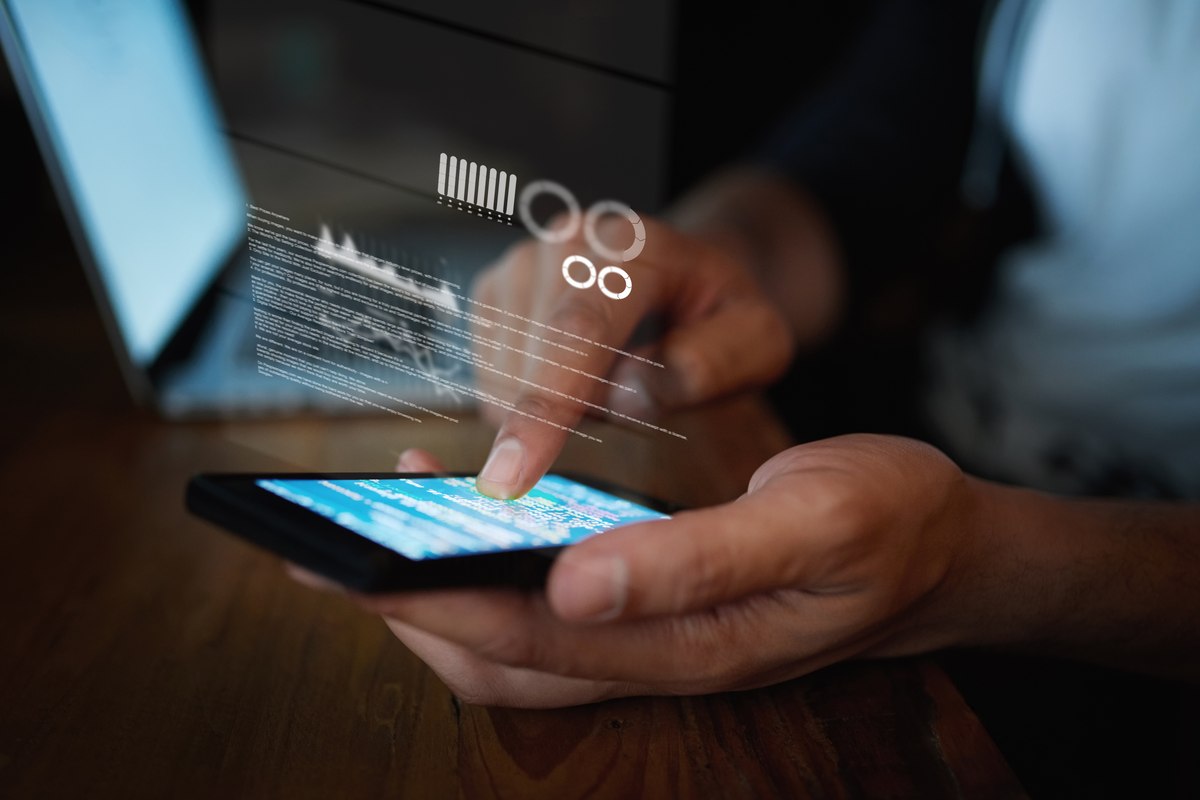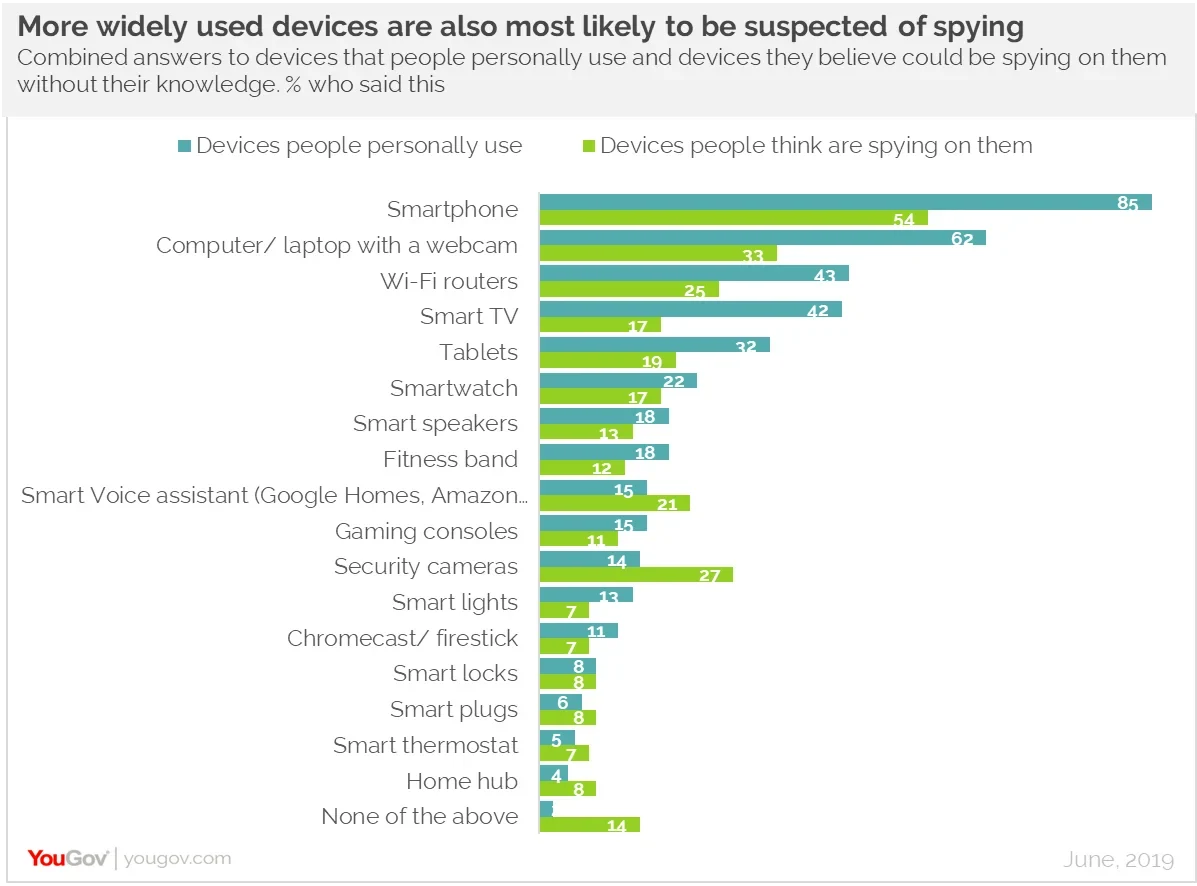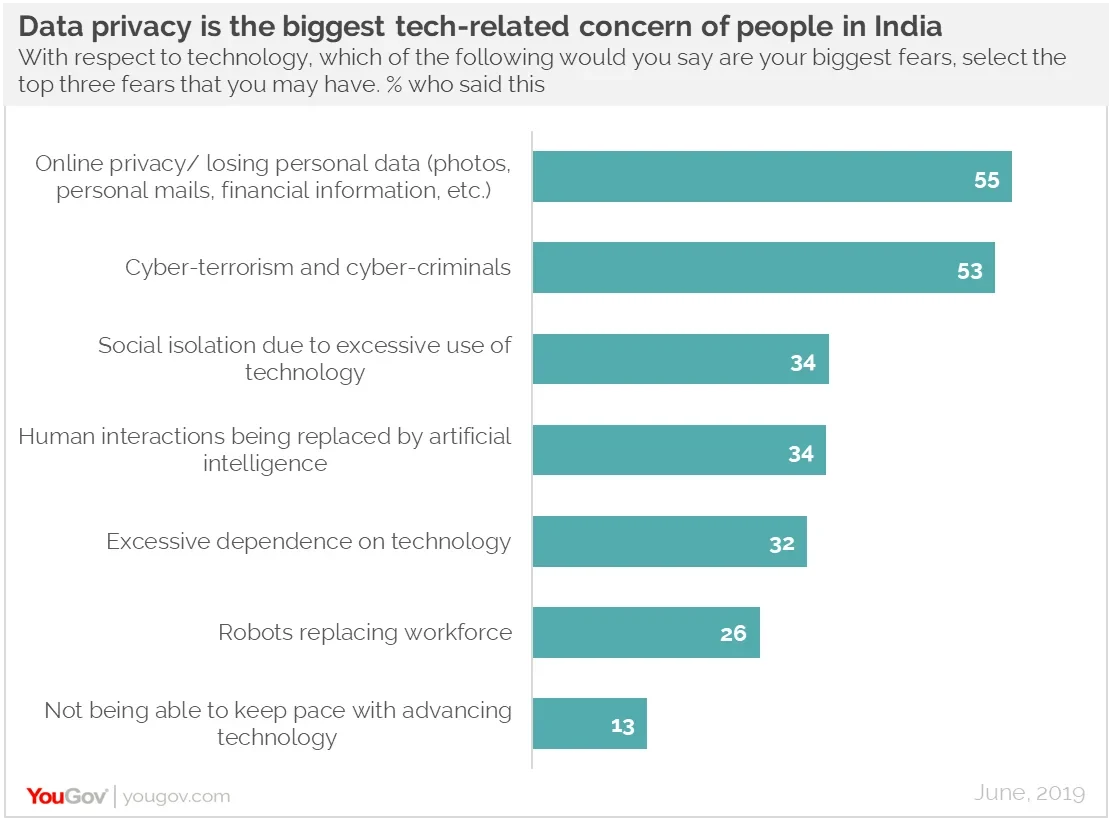
Majority of Indians think their smart device is spying on them
Research into how people feel about technology reveals that many also have concerns about data privacy and cyber terrorism
More than half of the people in India (52%) believe that their smart devices record personal information without their knowledge, new YouGov research reveals.
YouGov’s data finds that the most commonly used devices are also the ones people are most likely to think are monitoring them. While 85% of people own a smartphone, 54% believe the technology is spying on them. Similarly, when it comes to a computer/laptop with a webcam, the figures are 62% (who use) and 33% (who think it is spying on them), respectively.
However, there are a couple of cases where levels of belief that devices are monitoring their lives outstrips ownership. While 14% of Indians use security cameras, almost double (27%) believe that they spy on them. It is a similar case with smart voice assistants (21% think they are monitoring their lives and 15% use them).

The research shows that people have concerns about their online privacy and losing private data (such as photos, mails, financial information, etc.) is people’s biggest tech-related fear (with 55% saying it), with women being more likely than men to say this (58% vs 52%). Cyber terrorism (53%) is the second-biggest fear.

Around a third fear that with the rapid advancement of technology either they will be socially isolated (34%), human interactions will be replaced by artificial intelligence (34%) or there will be excessive dependence on technology (32%). Those above thirty are more likely to fear dependency on technology as compared to those under thirty (36% & vs 26%).
Just above a quarter (26%) worry that the advancement of technology could replace humans by robots at workplace and around one in eight (13%) think they may lose pace with the rampant technological advancement.
In order to protect themselves from a privacy breach, more than half the people set passwords on devices (with 53% saying this), followed by updating phone software and antiviruses regularly (48%). Around two in five people avoid using public Wi-Fi (42%), adjust their privacy settings on phone and social media (41%), delete or avoid downloading certain apps (41%) or restrict apps permissions (40%).
Men are more likely to browse in incognito mode (31% vs 22%) and use a VPN network (22% vs 17%) to ensure their privacy, while women are more likely to cover their webcam when not in use (20% vs 15%) and avoid phone banking (19% vs 14%) to protect themselves from an online scam.
Data collected online by YouGov Omnibus among 1,045 respondents in India in June 2019 using YouGov’s panel of over 6 million people worldwide. Data is representative of the adult online population in the country.